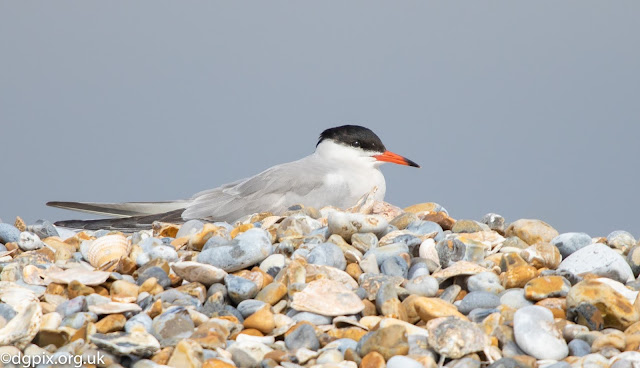Terns of Blakeney Point
Terns of Blakeney Point
Blakeney Point
Poking out into the North Sea from the Norfolk coast, this spit of land hosts seabirds, land mammals and the largest grey seal colony in the UK. Managed by the National Trust, wardens look after the vulnerable ground-nesting birds and many wildflowers that thrive on the shingle, and sandy soil based environment.
You can walk a good few miles to the point, but access to the tern colonies is restricted, and the easiest way to see these birds is from the vantage point of a boat - there are a few companies running trips out of Morston Quay, but by far the most knowledgeable and professional outfit is Beans Boats and I take a few trips each year with them for just this purpose.
As always, please click the images for a sharper view!
Gear
From the boat, the Sigma 150-600mm Contemporary lens was on my main Canon 7dMk2 for the trip. There is no room for tripods or any kind of bracing, so all shots had to be handheld, but the relatively high shutter speeds needed for the birds meant that the boat movement was mostly eradicated.
Common Terns
Common terns are here in abundance, the best views are from the boat on to the top of the shingle beach, where many of the commons have their nests, with the young easily spotted against the tufts of beach grasses.
Differentiated from the other terns by the black tip of a red beak, they are numerous and noisy as they bring in whitebait and sand eels on a constant basis for the fledgling chicks waiting on the shingle.
 |
| Common Tern on nest 1/1000s - f/6.3 - ISO200 - 600MM |
 |
| Common Tern tending to young 1/1000s - f/6.3 - ISO200 - 600MM |
Sandwich Terns
The largest of Blakeney's terns, these birds haven't nested in the same numbers this year, and I only observed displaying pairs, and no nesting birds. Pairs were exchanging food (sand eels) on the beach providing a great view.
Told apart by the slight crest, definitive size difference, and the yellow tip to the beak, these are handsome birds to photograph.
 |
| Displaying Sandwich Terns - 1/320s - f/10 - ISO200 - 562MM |
 |
| Sandwich Tern - 1/800s - f/6.3 - ISO160 - 600MM |
Arctic Terns
Roughly the same size as the common, these slightly rarer birds are distinguisged by an all red beak without the black tip marking. Not nesting in the same numbers, they are harder to spot amongst the more numerous commons
 |
| Arctic Tern - 1/1000s - f/6.3 - ISO160 - 600MM |
 |
| Arctic Tern - 1/400s - f/10 - ISO200 - 600MM |


Comments
Post a Comment